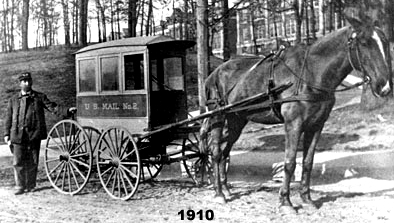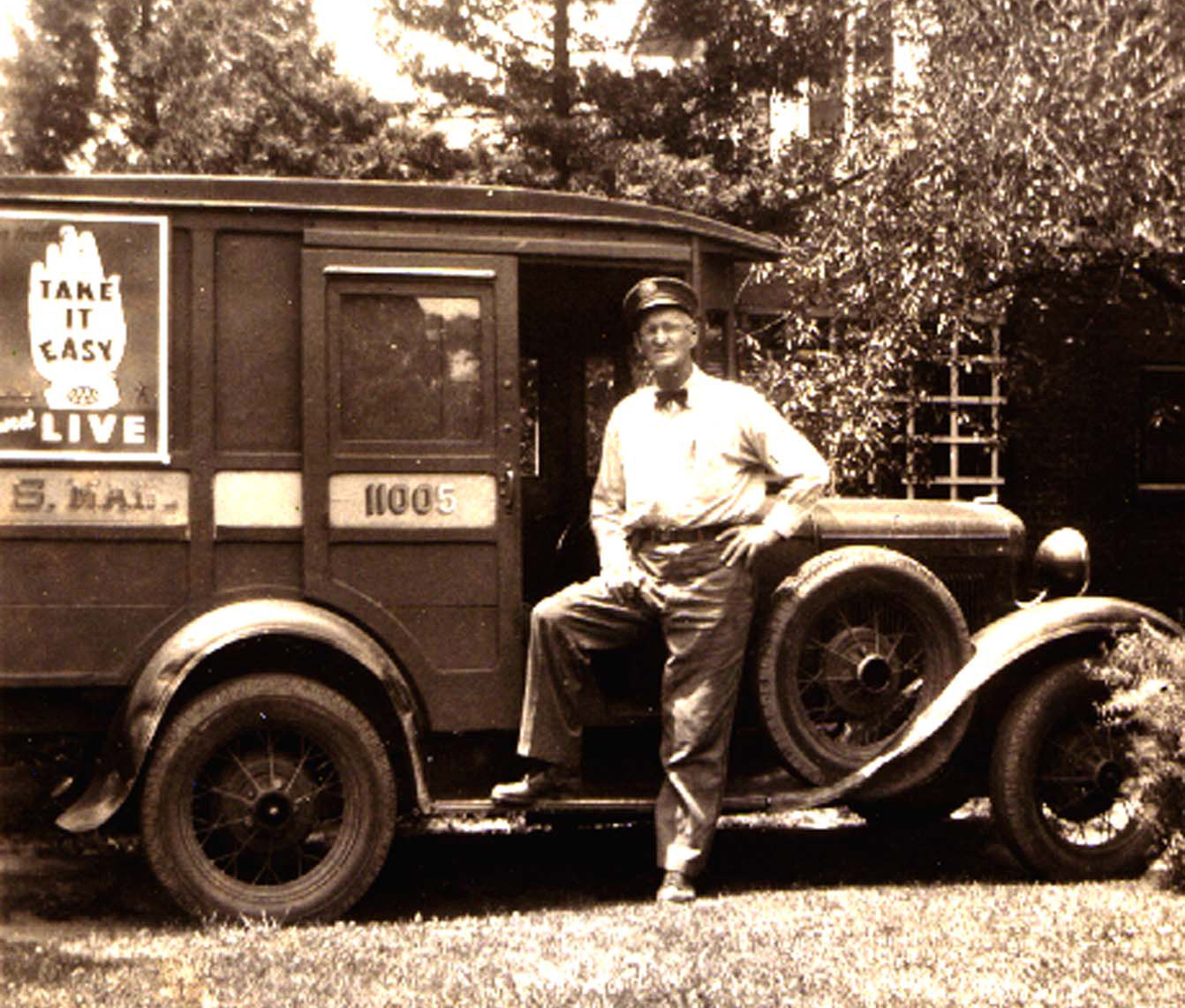My great uncle, Alfred Bowman, delivered mail in Johnson City between 1919 and 1946. Having been born in 1877 and raised in Gray, he witnessed firsthand the difficulties of receiving mail in a rural countryside prior to the turn of the century.
Unlike urban residents whose mail was delivered directly to their homes, country folks were not afforded this luxury, having to trek two or three times a month to a local post office, such as Gray’s Nellie facility, to receive their correspondence.

A significant change occurred in 1902. The new federally funded program, Rural Free Delivery (RFD), was ushered into America’s farmlands. Rural inhabitants began receiving mail at their dwellings, forcing the closings of most of the countryside post offices. Delivery to the numerous remote sprawling farms presented a formidable challenge for the carriers, attributed to unpaved potholed roads, unpredictable weather, elongated routes and the use of horse-drawn mail wagons.
Carriers received less than $50 a month and had to supply their own transportation. They had very little of the romantic aura that their distant cousins, the short-lived Pony Express riders, enjoyed in 1860 and 1861. Arrival of the semi-reliable automobile was an improvement to mail delivery, but it too had limitations. These newfangled vehicles frequently got stuck in mud, snow, ice and manure.
Local residents often beckoned their trusty old mules to assist some stranded mailman, after sliding into a ditch while trying to navigate along a narrow winding country road. These unserviceable and inaccessible roads caused many rural customers to be rejected for mail delivery, prompting local governments to orchestrate road improvements to meet RFD requirements. The post office attempted to standardize mailboxes, which consisted of anything from cigar boxes to lard cans and nail crates to feed containers. Residents were reluctant to spend their hard earned cash on something as frivolous as a mailbox.
The ongoing plight of these country mail carriers very likely prompted Alfred to seek an urban postal occupation in 1919. Johnson City hired him and assigned him route #4 from among eight choices.

Alfred Bowman Standing Beside His Postal Truck
Bowman was featured in an October 11, 1941 Johnson City Press-Chronicle newspaper article titled, “Get Acquainted with Your Mailman,” summarizing his career and relating a humorous event: About 1924, two postal employees, Joe Britt and C.G. Campbell, stopped in downtown Johnson City (probably at Fountain Square) to rest and water their horse. As a prank, C.G. offered Joe a ten-dollar bill to assume the role of the horse and pull him along Main Street, while he sat on the wagon.
About that time, Alfred came walking down the street and encountered his two coworkers. Joe upped the ante by asking Alfred to sit on the wagon with him for one dollar of his prize money. Joe released the horse from the wagon, put the two wooden shafts under his arms and slowly pulled the big wagon, containing the two men, along Main Street.
Their bizarre antics drew a sizable crowd of curious onlookers. Alfred accepted his eight-bit compensation from Joe and, without hesitation, handed it to a nearby blind beggar. Those were “the good old days” of yesteryear when people were more concerned with what was lying on the street than what was coming down it.
